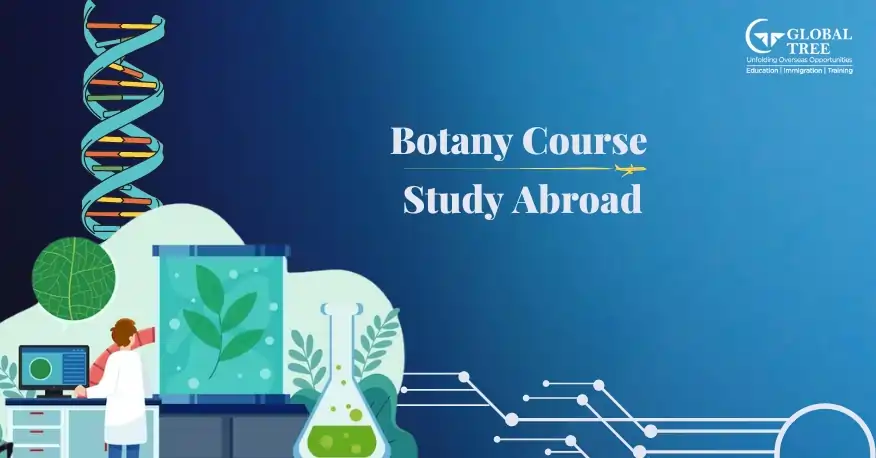Study Botany Course Abroad

Introduction
Botany is a discipline of biology that focuses on the structure, form, and biochemical processes of plant life. The classification of plants and the investigation of how a plant interacts with its surroundings are included in the study's scope. Botanists use their knowledge of plant biology to support a range of industries, including the chemical industry, pharmaceutical corporations, oil and seed companies, and biotechnology firms. Furthermore, more botanists will find possibilities in the public sector to aid in reversing environmental deterioration as environmental issues rise to the fore of the global consciousness.
Botanists broaden our understanding of plants by researching their biology, evolution, and behaviour. They then use this information to address problems in horticulture, agriculture, horticulture, and other related fields.
Who are Eligible to Study Botany Abroad?
Aspiring botanists must possess a variety of abilities. Candidates must have a strong interest in research and the ability to participate in it, in addition to having an interest in biology or plants. It is likely that you will succeed in this sector if you have excellent analytical and communication skills. As a botanist, you will primarily need to work patiently and persistently outside and in labs. You also need to be good at working in a team and have a computer aptitude. If you believe you have these traits, a career in botany can be fulfilling for you.
(Read More: Top Universities to study agriculture in USA)
What are the Admission Requirements to Study Botany Abroad?
Admission requirements for botany programmes vary amongst universities. A student must have majored in biology and chemistry in order to be admitted to a bachelor's programme in botany. Numerous colleges offer degree programmes in botany. You can pursue a bachelor's, master's or PhD in botany. For undergraduate programmes in botany, the average tuition in the US is $28,916; for graduate programmes, it is $26,636.
Why Does One Have To Pursue Botanical Sciences?
Aspirants in botanical sciences have a promising future. Students who choose botany as a career path can choose to work in educational institutions, commercial businesses, and government agencies. Plant scientists can also work in related subjects including ecology, conservation, agriculture, forestry, and biotechnology due to the multidisciplinary nature of botany.
Botanists' employment chances are expected to expand by 14% on average, which is substantially faster than the average for all other vocations.
Popular Career options for graduates of botany Abroad
For students who are interested in pursuing a career in botany, there are many alternatives available:
Naturalist
A naturalist explores how various living creatures interact with one another and with their surroundings. Their work is typically based on research. As a result, they support and carry out research programs constantly. The goal of all such studies is to gather scientific data and examine the factors that might benefit particular ecosystems or species. And taking that into account, a naturalist creates a plan to safeguard them in case of harm.
(Read More: What to choose after your 10th standard?)
Florist
A florist handles floral materials. They can either buy flowers from a wholesaler or grow their own flowers. These flowers will subsequently be arranged into bouquets and baskets for buyers. They are sufficiently knowledgeable about the effects of various settings on flowers and which flowers bloom during certain seasons. Additionally, they inform customers about their offerings.
Forester
Their main responsibilities include tending to, planting, and managing the forest's trees. Geologists and wildlife biologists frequently work as foresters. As a result, they frequently work along with other specialists in biology and conservation. Protecting wilderness areas, promoting public leisure, controlling forest fires, and creating plans to improve the habitats of many species in the woods are some of the things that may be done.



 964 260 9000
964 260 9000